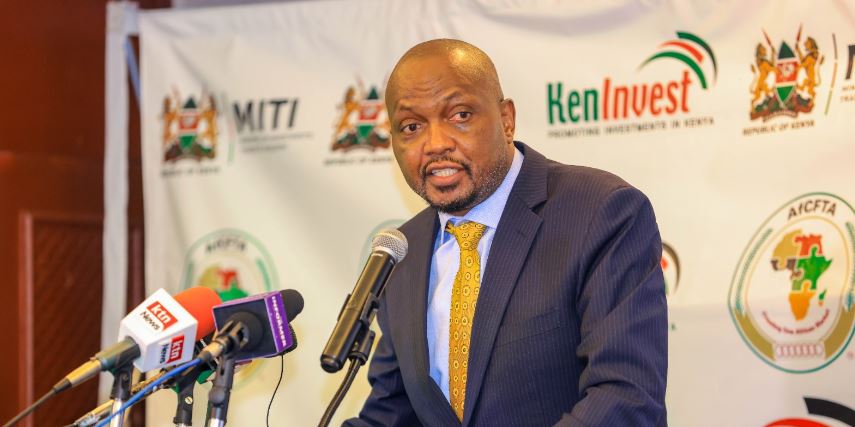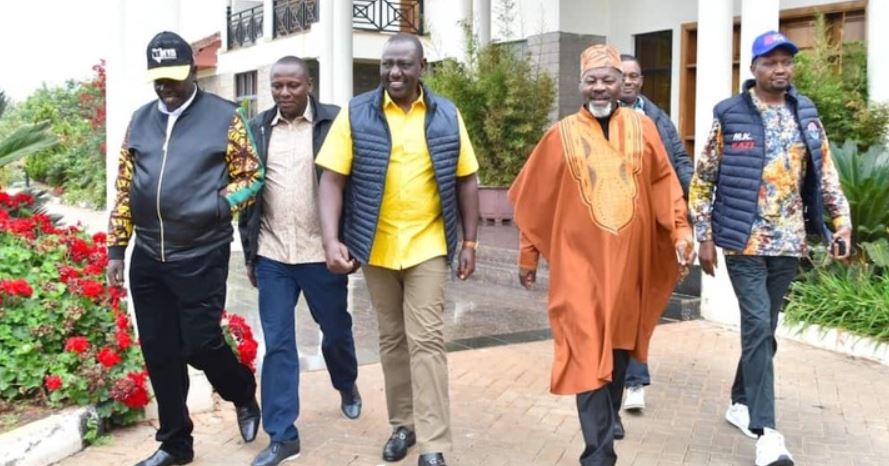
The proposal is part of the government’s effort to rejuvenate the struggling cotton industry in the country.
“As a country, we have a rich textile sector, but it has been stifled by imports. The textile industry should be expanded to benefit Kenyans and to encourage the sector to grow, we need to control imported fabrics,” Moses Kuria said.
The CS was speaking at a pre-devolution conference meeting with textile industry stakeholders.
“For us to revive the textile industry, Kenyans should consume more of our locally made clothes. But that’s not the case at the moment because mitumba and other imported fabrics are now our main source of clothing. We should reverse this trend,” Kuria said.
The Minister also regretted that the sector currently provides employment for approximately 50,000 people, a number far below the potential for creating jobs across the entire value chain.
CS Kuria revealed that the government plans to introduce a Bill during this fiscal year to enforce a 25 percent tax on imported textiles, asserting that imported garments should be categorized and taxed as luxury items.
In order to incentivize Mitumba traders to support domestically produced clothing, he announced that the government would ensure the availability of affordable fabric.
“One of the reasons Kenyans flock to mitumba is the perception that they are cheap. In the future, we will create an alternative for the mitumba where they will have access to cheap and durable clothes for sale,” he said.
Moses Kutria urged regions that cultivate cotton to enhance their production efforts, noting that farmers are enthusiastic about a resurgence in the sector.
“I was recently in Busia County and was thrilled by the enthusiasm of the farmers. All they needed was a little support to help them achieve maximum yields, not the seminars, workshops and benchmarking we see,” said the CS.
“We intend to give incentives to counties that explore their potential in cotton production. We will give them commercial ginneries with full boards and make them semi-autonomous.”








